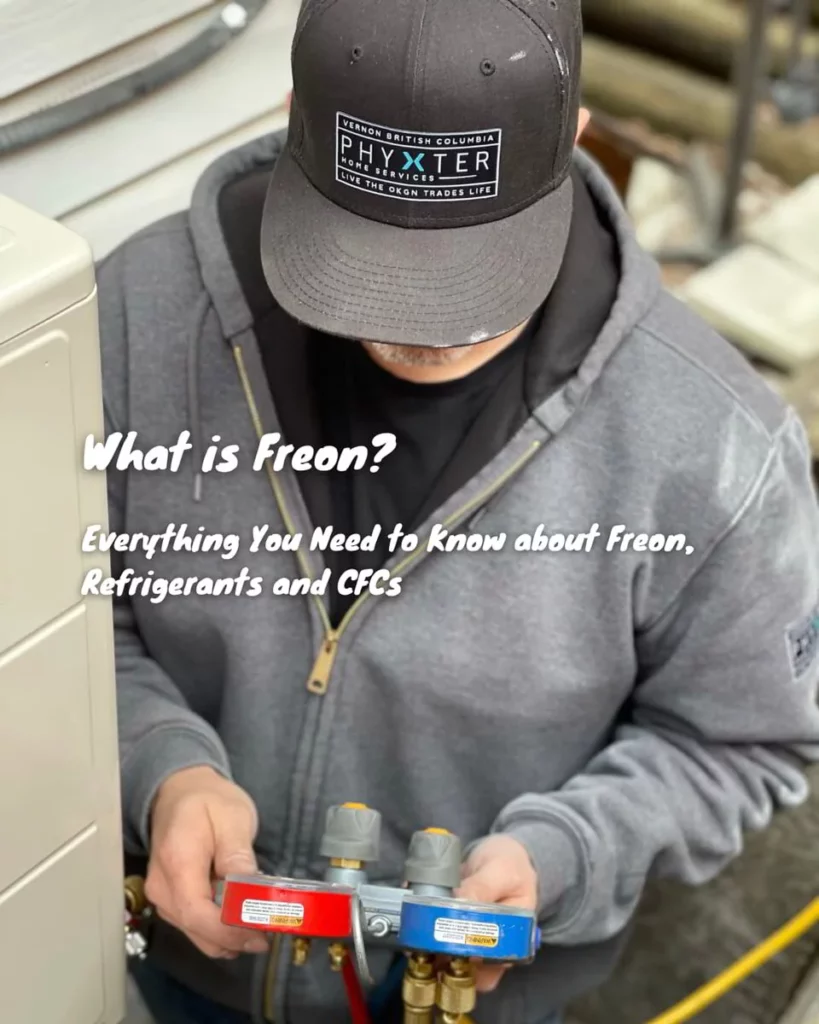Table of Contents
Freon has become a household name, synonymous with refrigerants used in air conditioning and refrigeration systems. Originally a brand name patented by DuPont, this term refers to a range of stable, non-combustible gases used to cool and dehumidify the air, highlighting its pivotal role in modern HVAC systems. Understanding Freon is more crucial now than ever due to its environmental impact and the ongoing shift towards more sustainable alternatives.
The discussion around Freon and its alternatives becomes increasingly relevant as we move forward. The environmental considerations of using such chemicals, including their role in ozone depletion and the global push for greener technologies, make this a timely topic.
Our article dives into what Freon is, how it works in your air conditioning system, and why the industry is moving away from its use, promising to equip you with the knowledge to make informed decisions about your home’s cooling needs.
⭐ Key Takeaways
- Freon is a brand name: Recognize that Freon refers specifically to a group of refrigerants made by DuPont, not all refrigerants.
- Environmental impact: Be aware of Freon’s environmental concerns, particularly its role in ozone depletion, which has led to its phased reduction under international agreements.
- Alternatives are available: Consider using newer, more environmentally friendly refrigerants like R-410A, which have replaced older compounds such as R-22 in modern HVAC systems.
- Proper handling is crucial: Always ensure that certified professionals handle Freon or any refrigerant to prevent accidental release into the atmosphere, which can be harmful.
- System compatibility: If upgrading or servicing an HVAC system, check that it is compatible with modern refrigerants, especially since newer alternatives operate at different pressures than older ones
⭐ What is Freon, and what is it made of?
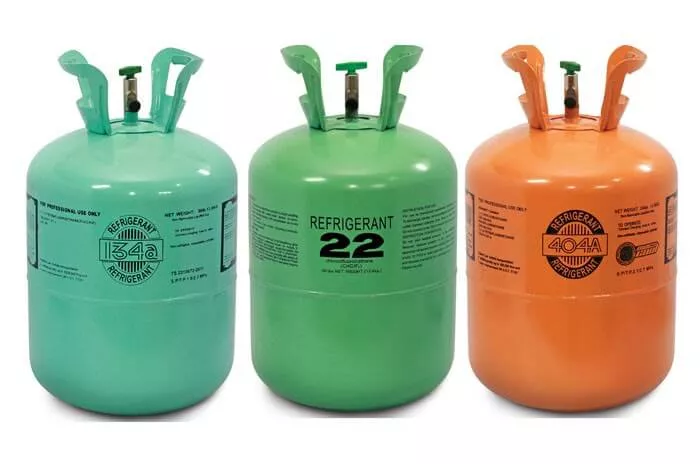
✔️ The Short Answer:
Freon is the commercial brand name of a refrigerant patented by DuPont.
✔️ The Long Answer:
Freon is the name of a registered patent for a commercial non-combustible gas refrigerant manufactured by DuPont.
Although Freon is a brand name, it has come to be referred to in the HVAC industry as a synonym for “refrigerant” or cooling agent. Freon is a medium-toxic but stable halocarbon. I have no idea what this means, but that is why I write articles for everyday people and leave the smart talk for my partner, Jake.
Joking aside, this means that it is slightly toxic, which I will address below, but it is chemically stable and will not react when mixed with other substances. We use Freon because it has a rather useful property that is important to the air conditioning industry – it creates a cooling effect when it evaporates.
So, now we know that Freon is a common term for a commercial AC refrigerant used by air conditioners and heat pumps. This also means that when people ask, “What is this freon gas you speak of,” they should instead ask, “What is refrigerant, and what is it made of?”
⭐ What is Refrigerant, and What is it Made Of? What are CFCs?
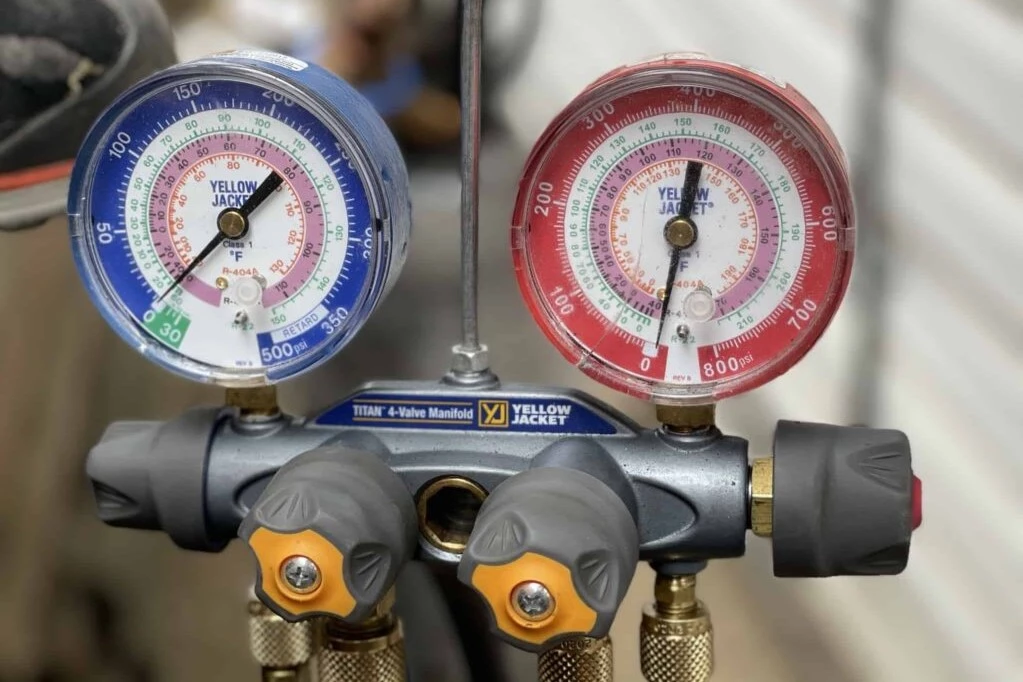
The refrigerants used in your air conditioner are called chlorofluorocarbons, or CFCs. Some examples are R-22 and R-410A, both used heavily in the HVAC industry.
R-410A (other names are: Puron, Suva 410A, and Genetron AZ-20) replaced R-22 as the preferred refrigerant for commercial and residential air conditioning systems in most developed countries.
This was in accordance with the Montreal Protocol that mandated the production and import of R-22 and other similar products called HCFCs started the phase-out process from 1 Jan 2010.
An important note is that R410-A operates at a higher pressure, which is incompatible with existing systems that use R-22. Therefore, your AC system may be retrofitted to use a newer refrigerant.
To confuse you even more, R-410A is now slated for retirement and elimination from all new air conditioning units in 2023.
So what does all this mean, and what is chlorofluorocarbons? Don’t worry, I think the same thing and do this for a living. These CFCs may sound familiar to those in the know because they are better known for their controversial role in the ongoing debate about ozone depletion and global warming.
This is why all licensed HVAC contractors are required to recover it upon the recharging of an AC unit instead of letting it empty into the atmosphere. This is one of the many reasons that it is so important to hire a licensed HVAC technician and ensure that this is done correctly.
⭐ How Freon Works in Your Air Conditioning System
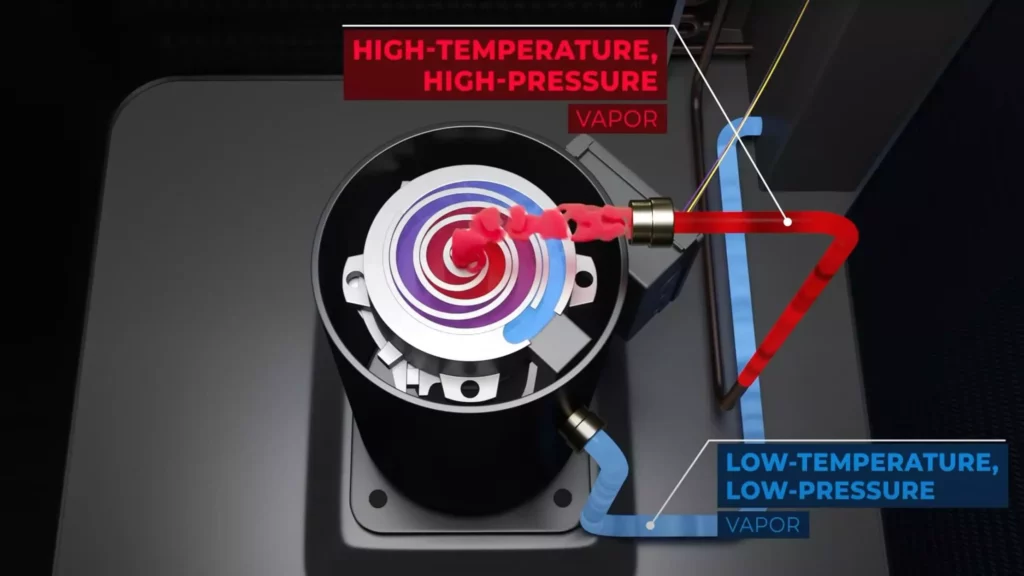
Freon circulates through your AC system via a series of refrigerant lines. This substance travels through the system and refrigerates to cool your home. Firstly, the gas is compressed (it gets hot at this point) via the AC compressor and pushed through the condenser coil, where it transfers that heat into the outside air.
As the Freon cools, it is converted back to a liquid state. It then moves through a thermal expansion valve (TXV), is converted to a low-pressure gas, and is pushed through the evaporator coil. The cold Freon soaks up the heat in your home to produce cool air. The refrigerant is in a closed system and should not be depleted on its own.
If your cooling system develops a leak, an HVAC professional will need to repair it and top it off with more refrigerant. If you have an older system that uses R22, your AC system will not be compatible and require upgrading to use a replacement refrigerant.
Related Reading: How Long Does An AC Compressor Last?
⭐ Recovering Freon Gas.
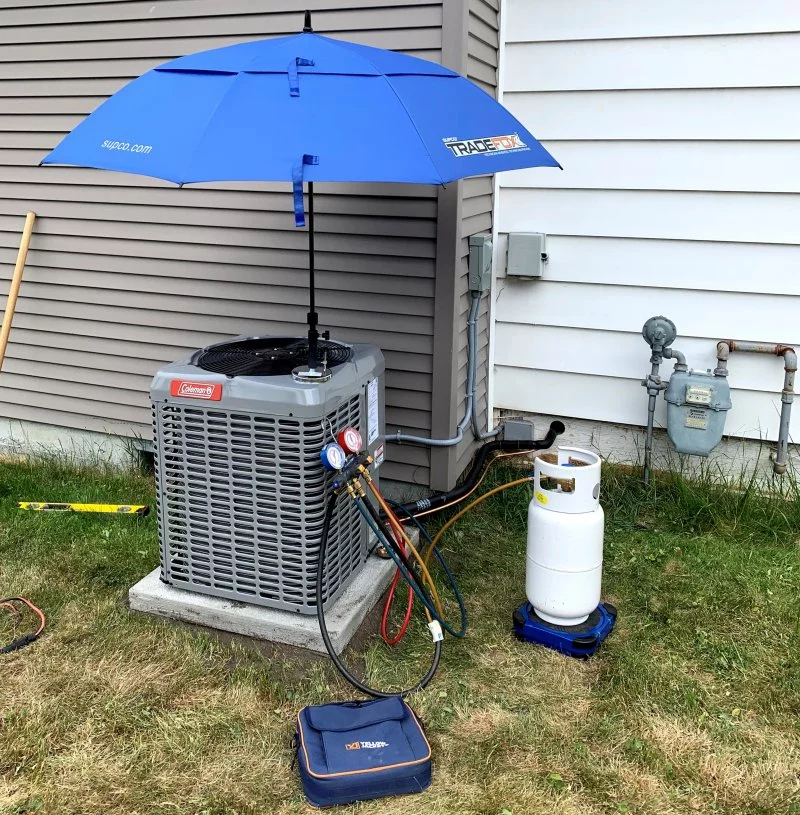
Freon recovery is not challenging, but many “old-school” contractors just let it vent into the atmosphere. So, regardless of which side you sit on regarding the ozone debate, if your contractor gets caught venting Freon without a good reason, both of you could be held liable.
I would wager that most licensed contractors do this properly, but just so you know, it wasn’t always done this way. Before we knew what CFCs were and how they hurt the ozone layer, it was common practice to release Freon directly into the air! It’s kind of scary when you think about it, but how often do we look back at how things used to be done and cringe?
The life of Freon and other refrigerants could be short-lived as the industry is constantly innovating and looking for new and exciting technologies. The focus is ensuring cooling systems no longer burden the environment and their effect on global warming.
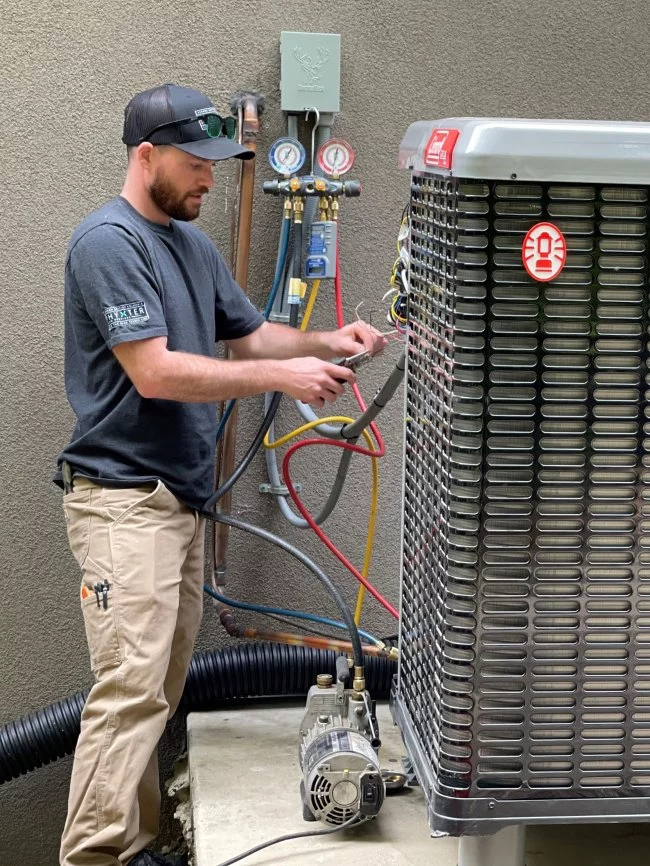
⭐ Conclusion on What is Freon
Freon is commonly used as a general term for refrigerants in air conditioning systems, much like referring to all tissue paper as “Kleenex.” It is important to understand that Freon refers to a group of refrigerants manufactured under that brand name. This article clarifies the common misconceptions around Freon and explores the various types of refrigerants used in air conditioners, their composition, and environmental impact.
Phyxter Home Services brings expertise and experience in air conditioning and heating solutions. Our knowledgeable team ensures you receive the most accurate and up-to-date information, helping you make informed decisions about your home’s comfort systems.
We encourage you to explore more insightful articles on our blog and to consider Phyxter Home Services for top-notch air conditioning, heating, plumbing, and electrical needs in the Okanagan Valley region. If you have any questions or need a specialized article, don’t hesitate to reach out—we’re here to help!

